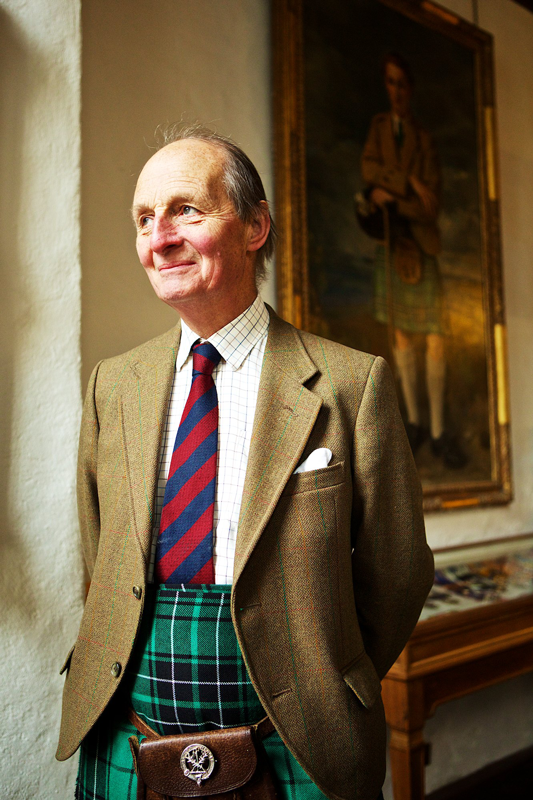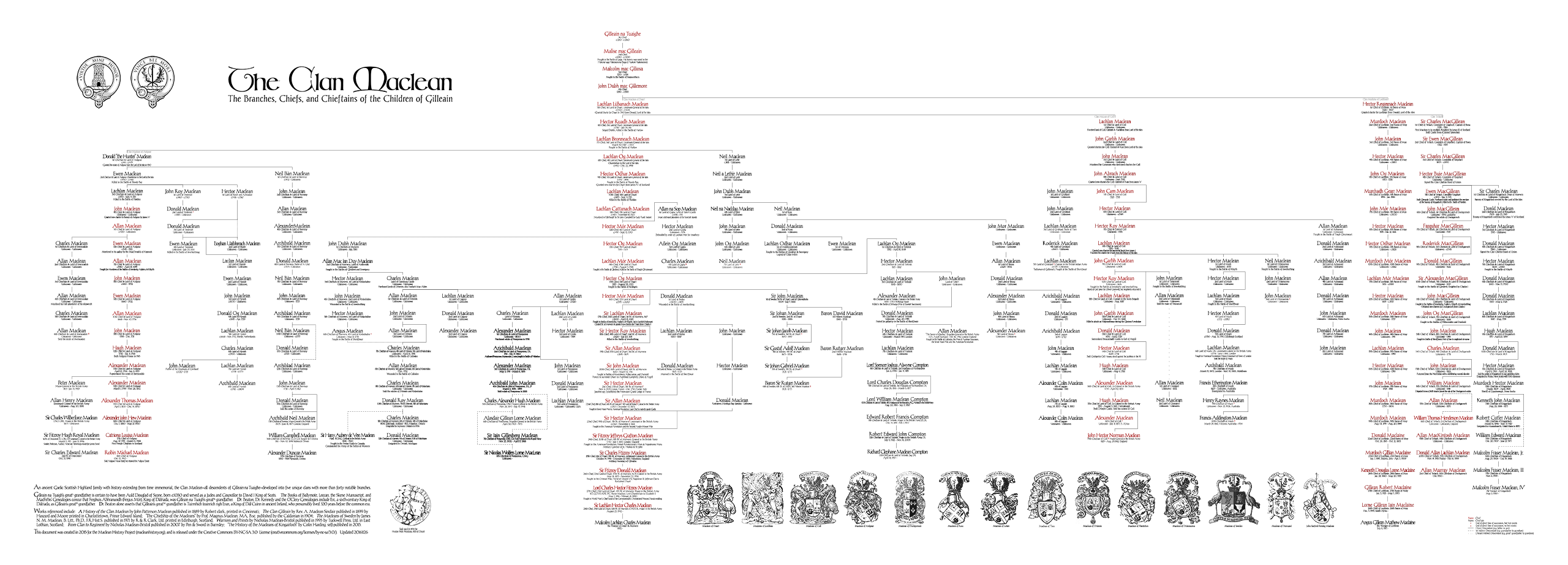The Clan Maclean Today
The Clan Maclean is one of the oldest living Scottish clans with a history that has been traced back to the Loairn kindred of Dalriada. Throughout most of its history, it was concentrated around the Isle of Mull in Argyle and the Inner Hebrides and is numbered among the Highland clans. Following the Jacobite Uprising, macleans spread across the globe, particularly to Americans, Australia, New Zealand, and South Africa creating the diaspora of cousins we know today. The Maclean History Project conservatively estimates that there are approximately 308,000 Maclean families in 132 countries around the world; and they are 11 associations around the world that form Clan Maclean International.

The Chief
Today the 28th hereditary chief of the Clan Maclean is Sir Lachlan Maclean, Bt, CVO, DL. Sir Lachlan is known as kind, humble, soft-spoken, and genuinely warm. He was born in 1942 to Lord Charles and Elizabeth Maclean, née Mann, in Windsor, Berkshire of southeast England; weeks later Sir Lachlan was taken to Duart because the western Highlands were safer than suburbs of London while World War II raged. He would spend much of his early years at Duart.
Sir Lachlan became the 12th Baronet of Duart and Morvern in 1990. He was appointed Commander of the Royal Victorian Order and Deputy Lieutenant of Argyll & Bute. Additionally, he is a Lieutenant in the Royal Company of Archers (the monarch’s historic body guard in Scotland); In this role he served as Silver Stick for Scotland during the 1999 state visit of Queen Elizabeth II for the opening of the Scottish Parliament.
A Graduate of Eton, Sir Lachlan attained the rank Major in the Scots Guards and was selected to serve in the Special Air Service (SAS). Among his classmates were 20 future government officials and politicians, 5 future judges, 4 members of royal households, and several future celebrities. Sir Lachlan served in combat operations for which he was awarded the General Service Medal and the the United Nations Medal.
Following his retirement from military at age 29, Sir Lachlan enjoyed a full career a corporate executive, and served on the Board of Trustees and as Secretary of the Robertson Trust, an independent charitable Scottish trust whose priorities are community-based care, health, education, art, and sport.
Keenly ware of the significant role the Macleans have played in Scotland and around the world throughout the last eight centuries, Sir Lachlan has worked to preserve the Clan’s history and historical sites. He was instrumental in creating the Clan Maclean Heritage Trust, and he continues lead the modern world-wide family the ancient clan has become.
The Chieftains
The Chieftains are the hereditary leaders of independent houses of the clan, and they continue the traditions and heritage of our ancestors. These “houses” refer to the estates chartered by the monarch or chief that once formed more than 40 distinct branches of the Clan Maclean. Most of these branches have passed into obscurity following war and lack an heir. Five of these estates, such as Lochbuie, held their charter directly from the crown making them discrete and independent clans while also generally considered part of Clan Maclean.
Today the Chieftains of the remaining houses are: Lorne Maclaine of Lochbuie (who is also Chief in his own right of the Clan Maclaine of Lochbuie), Robin Maclean of Ardgour, the Very Reverend Canon Allan Maclean of Dochgarroch, Sir Charles Maclean of Dunconnel Bt, Nicholas Maclean of Pennycross, Richard Compton Maclean of Torloisk and Malcolm Maclean of Kingairloch.
Branches of the Clan Maclean

Sir Fitzroy Maclean said in his book, The Isles of the Sea that the clan had its foundation first and foremost in the deeply rooted Celtic principle of kindness, a mixture of kinship and long tradition, stronger than any written law.
As Macleans spread across the globe, the value of kinship is passed down through the generations. Wherever Macleans find themselves and their cousins, there is a distinct feeling of family and friendship, what Sir Fitzroy described as “kindness.”
